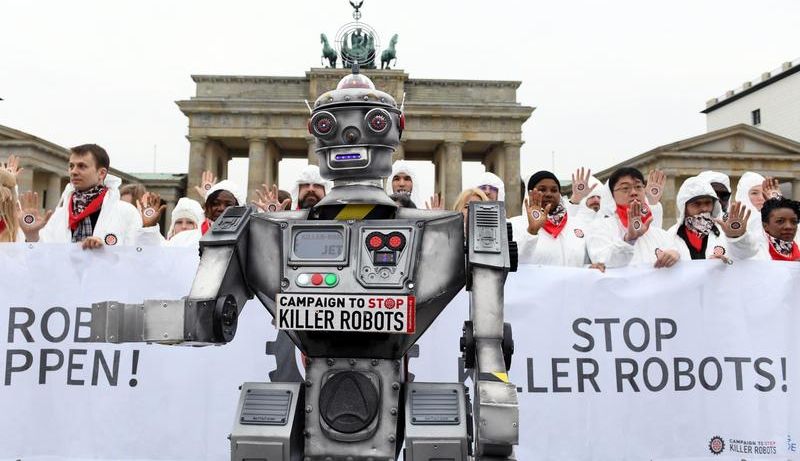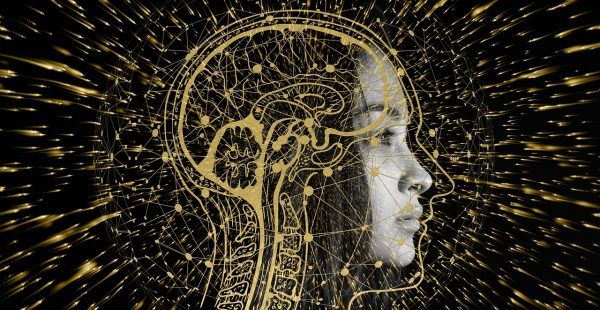But will the effort undermine A.I. ethics?
Primer, the San Francisco A.I. company, is the latest to launch a no-code software system that lets non-experts create and train A.I. algorithms.

All of which would be nice and handy, but clearly, privacy and ethics are going to be a big issue for people — particularly when a company like Facebook is behind it. Few people in the past would ever have lived a life so thoroughly examined, catalogued and analyzed by a third party. The opportunities for tailored advertising will be total, and so will the opportunities for bad-faith actors to abuse this treasure trove of minute detail about your life.
But this tech is coming down the barrel. It’s still a few years off, according to the FRL team. But as far as it is concerned, the technology and the experience are proven. They work, they’ll be awesome, and now it’s a matter of working out how to build them into a foolproof product for the mass market. So, why is FRL telling us about it now? Well, this could be the greatest leap in human-machine interaction since the touchscreen, and frankly Facebook doesn’t want to be seen to be making decisions about this kind of thing behind closed doors.
“I want to address why we’re sharing this research,” said Sean Keller, FRL Director of Research. “Today, we want to open up an important discussion with the public about how to build these technologies responsibly. The reality is that we can’t anticipate or solve all the ethical issues associated with this technology on our own. What we can do is recognize when the technology has advanced beyond what people know is possible and make sure that the information is shared openly. We want to be transparent about what we’re working on, so people can tell us their concerns about this technology.””
When augmented reality hits the market at full strength, putting digital overlays over the physical world through transparent glasses, it will intertwine itself deeper into the fabric of your life than any technology that’s come before it. AR devices will see the world through your eyes, constantly connected, always trying to figure out what you’re up to and looking for ways to make themselves useful.
Facebook is already leaps and bounds ahead of the VR game with its groundbreaking Oculus Quest 2 wireless headsets, and it’s got serious ambitions in the augmented reality space too. In an online “Road to AR glasses” roundtable for global media, the Facebook Reality Labs (FRL) team laid out some of the eye-popping next-gen AR technology it’s got up and running on the test bench. It also called on the public to get involved in the discussion around privacy and ethics, with these devices just a few scant years away from changing our world as completely as the smartphone did.

Dr. Hassan A. Tetteh, MD, is the Health Mission Chief, at the Department of Defense (DoD) Joint Artificial Intelligence Center, serving to advance the objectives of the DoD AI Strategy, and improve war fighter healthcare and readiness with artificial intelligence implementations.
Dr. Tetteh is also an Associate Professor of Surgery at the Uniformed Services University of the Health Sciences, adjunct faculty at Howard University College of Medicine, a Thoracic Staff Surgeon for MedStar Health and Walter Reed National Military Medical Center, and leads a Specialized Thoracic Adapted Recovery (STAR) Team, in Washington, DC, where his research in thoracic transplantation aims to expand heart and lung recovery and save lives.
In the past, Dr. Tetteh has served as Chief Medical Informatics Officer, United States Navy, and Division Lead for Futures and Innovation at Navy Medicine’s Headquarters, a Command Surgeon for the National Defense University, and as a Robert Wood Johnson Health Policy Fellow, assigned to the U.S. Congress, Congressional Budget Office, (CBO).
Dr. Tetteh served as Ship’s Surgeon and Director of Surgical Services for the USS Carl Vinson battle group in support of Operation Iraqi Freedom, deployed as a trauma surgeon to Afghanistan’s Helmand and Nimroz provinces in support of Operation Enduring Freedom, and has supported special joint forces missions to South America, the Middle East, the South Pacific, Australia, and Africa. He earned both the Surface Warfare Medical Department Officer and Fleet Marine Force Qualified Officer designations, and his military honors include two Meritorious Service Medals and the Joint Service Commendation Medal.
Dr. Tetteh is also an accomplished author, including the novel “Gifts of the Heart”, “Star Patrol” (co-authored with his son Edmund Tetteh), as well as “The Art of Human Care” and “The Art of Human Care for COVID-19″ (illustrated by his daughter Ella Bleue), and has published numerous articles on surgical innovation, health information technology, ethics, wounded warriors, and process improvement. He also serves on the board of directors for the Brooklyn, New York based Arthur Ashe Institute for Urban Health, Fayetteville, Arkansas based Champions for Kids, and Miriam’s Kitchen, a Washington, D.C. based nonprofit that works to end chronic homelessness.
Dr. Tetteh received his B.S. from State University of New York (SUNY), his M.D. from SUNY Downstate Medical Center, his M.P.A. from Harvard’s Kennedy School of Government, M.B.A. from Johns Hopkins University Carey Business School, and M.S. in National Security Strategy with a concentration in Artificial Intelligence from the National War College. He completed his thoracic surgery fellowship at the University of Minnesota and advanced cardiac surgery fellowship at Harvard Medical School’s Brigham and Women’s Hospital. Dr. Tetteh is a Certified Professional in Healthcare Information and Management, board certified in thoracic surgery, general surgery, clinical informatics, and healthcare management, and is a Fellow of the American College of Surgeons and Fellow of the American College of Healthcare Executives.

Julian Huxley was part of the intellectual dynasty started by TH Huxley, and is more influenced by Buddhist ideas than Judeo-Christian. “T. H. Huxley was a paleontologist with a medical background who gained great prominence in the nineteenth century as one of the foremost defenders of Darwin’s evolutionary theory. Victorians were often inclined to see him as “the living embodiment of science militant,”(8) for Huxley actually clashed with contemporary defenders of Biblical supernaturalism in the name of science.(9) A very late product of his intellectual career, Evolution and Ethics (1893) shows him in a mellowed, reflective mood. The radical disjunction between the ethical and the cosmic processes such as is frequently highlighted here hardly squares with “orthodox” Darwinism; in fact Irvine has called Huxley’s effort in this context a “somewhat puzzling manoeuvre” that is “full of talk about Indian mysticism and of protest about the cruelties of evolution.”(10) Yet his overall treatment of his theme is not a matter that need concern us now.(11) What must be noted, on the other hand, is that in the course of his professed endeavor to inquire into the origin and the basis of ethical values from an evolutionary standpoint, Huxley indeed undertook a brief survey of the leading philosophies that had helped to form mankind’s conceptions of such values. He emphasized in this connection that India had engendered a distinctive outlook on life, and some of the ideas central to that outlook (as, for example, karman) actually made a notable impression on him. But it is upon a particular religion of Indian origin, namely Buddhism, that he chose to dwell at length and, I think, in a way that merits close attention.” Buddhism is” system which knows no God in the Western sense; which denies a soul to man; which counts the belief in immortality a blunder and hope of it a sin; which refuses any efficacy to prayer and sacrifice; which bids men look to nothing but their own efforts for salvation; which in its original purity, knew nothing of vows of obedience, abhorred intolerance, and never sought the aid of the secular arm; yet spread over a considerable moiety of the Old World with marvellous rapidity, and is still, with whatever base admixure of foreign superstitions, the dominant creed of a large fraction of mankind.”
A note on a Victorian evaluation and its “comparativist dimension” By Vijitha Rajapakse Philosophy East and West Volume 35, no. 3 (July 1985)
©by the University of Hawaii Press
British perceptions of Buddhism tended to be surprisingly vague during the early part of the nineteenth century. Even so reputed an “authority” on India at the time as James Mill, for example, does not appear to have known anything definite on the subject; his famous The History of British India (1818) incorporates some lengthy commentaries on India’s cultural and intellectual achievements, but save for a bare reference, Buddhism, significantly, escaped his consideration. Evidently, James Mill, to all intents and purposes, viewed India as home to a single indigenous religion, Hinduism.(1) These perceptions, however, changed in due course, thanks to the advance of Oriental scholarship, especially Western research on Buddhist textual sources.

Beyond AI-powered weapons, the panel’s lengthy report recommended use of AI by intelligence agencies to streamline data gathering and review; $32 billion in annual federal funding for AI research; and new bodies including a digital corps modeled after the army’s Medical Corps and a technology competitiveness council chaired by the U.S. vice president.
The United States should not agree to ban the use or development of autonomous weapons powered by artificial intelligence (AI) software, a government-appointed panel said in a draft report for Congress.



